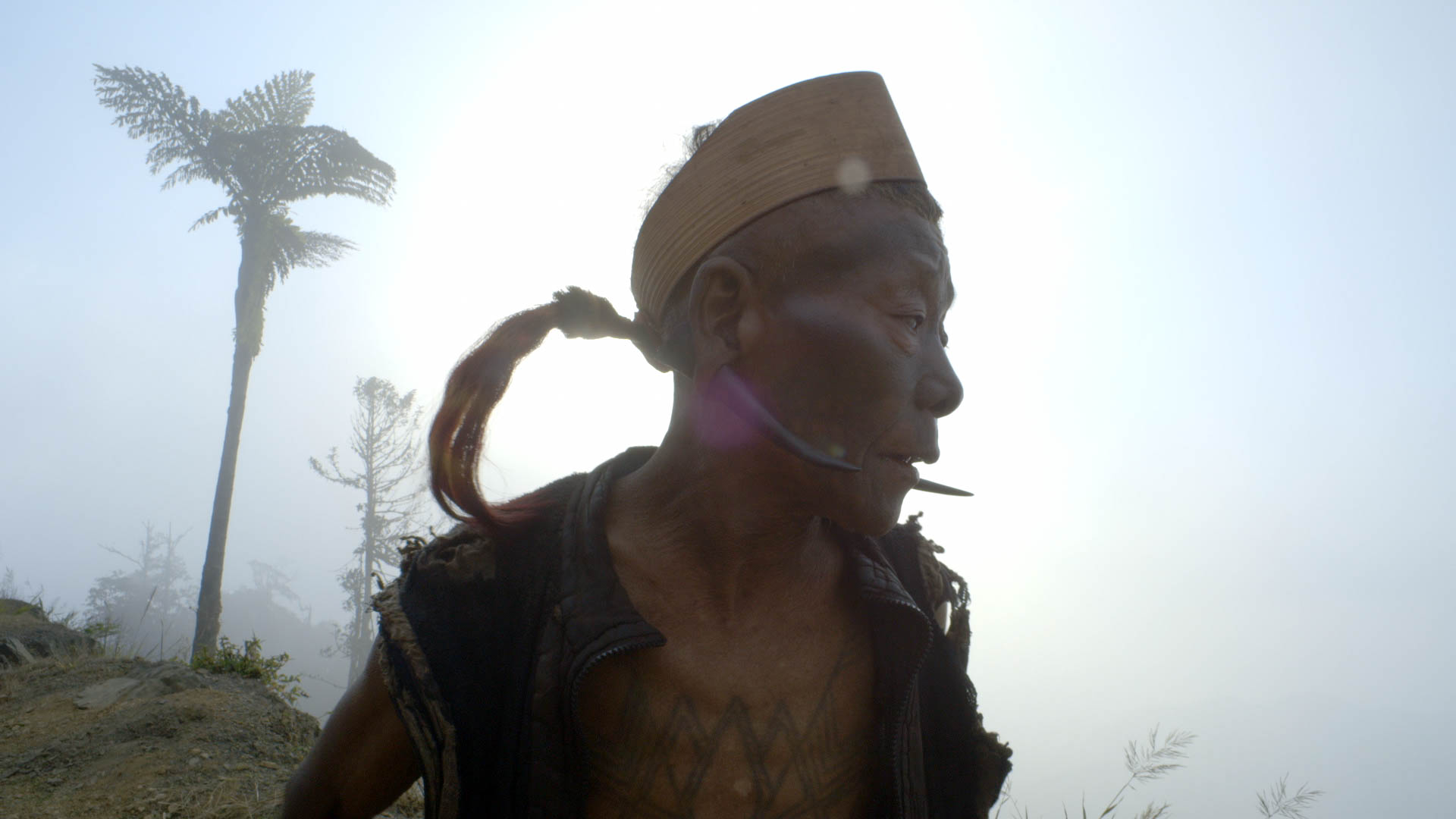The past few years have witnessed a steep rise in the number of documentaries settling in to listen to seasoned old warriors - usually from musical scenes: the blues, reggae, rock - trotting out their battle stories for the benefit of filmmakers palpably thrilled to be putting so much legacy on the record. The USP of Last Headhunters of the Nagas, screening this week at the JioMAMI Mumbai Film Festival, is that its interviewees are literally warriors; their stories speak not to a way of life, but death. In the opening moments, the director Aryan Biju Baruah introduces us to 81-year-old Chingchok and 83-year-old Mannyam, representatives of a once-lost tribe in the jungles separating North from North East Asia, men who wear frankly terrifying-looking bones through their earlobes, like the tribal avatars in old Beano comic strips; they caper and cavort as they recount for the camera how they routinely slaughtered any outsiders who strayed into their territory. (Rather than the soul survivors of Atlantic and Stax, then, they are closer - geographically, spiritually - to the Khmer Rouge hitmen of Joshua Oppenheimer's The Act of Killing.) Two questions immediately present themselves. How on earth did Baruah find these subjects, who've spent most if not all of their lives in the wilderness, keeping civilisation at bay? Secondly, having been invited in for a spot of lunch, was he ever scared?
The evidence presented suggests the answer to the latter question was: probably not. Baruah instead finds these now frail, ever so slightly pitiful old men pretending to slay the surrounding trees, which is either a form of displacement (the headhunter equivalent of vaping, perhaps) or a sign of incipient senility. A tour of the men's village - converted into a cross between a heritage centre and a mausoleum, opening up its racks of animal skulls to curious onlookers like the filmmaker - gestures towards what's changed in this neck of the woods over recent decades. And from the silence Baruah allows to fill his frames, we gradually discern what's gone missing with that: the full-throated war cries, the bloodcurdling screams of the vanquished. In their place: peace, enough for a school to have been built for the village's youngsters on what was once a killing field, enough too for it to seem as though the community's elders have lost something essential to their sense of self. The wisened wife of the tribal king recalls how happy she was to see how happy her late husband was in the wake of any headlopping, before lamenting, with a sigh, "There's nothing to do nowadays. Just sitting." Chingchok shruggingly reports he's cleared the local cardamom fields, which is fine and all, but hardly an activity to set the pulse racing. He and Mannyam increasingly resemble men out of time, like those fusty enthusiasts who spend their weekends recreating WW2 land battles.
Once the initial shock of a confrontation with an old world wears off, a certain repetition sets in: to drive the point home, we too are left sitting, and waiting for the subjects' moment to pass altogether. The one subject that doesn't come up in direct conversation, but which hangs weightily over every interview Baruah conducts, is that of the law: do we take the headhunters' testimony - their enthusiastic recollections of savagery - as self-incriminating confession, as we did in the Oppenheimer film, and push for charges of some kind against these blithely unrepentant octogenarians, or do we put it down to the law of the jungle, and thereby let it go? There's not an easy answer to this question, and Baruah is reluctant to press his subjects too hard on the matter, for obvious reasons: frail as Mannyam and Chingchok are, they still wield a mean machete. The reason those blades haven't been raised in anger in some years is hinted at when the filmmaker sits down with the mayor of the village - a mild-mannered, plump-bellied fellow, son of the tribal elders, yet very much the council chambers type - and asks what it was that put paid to the prevailing tribalism; his one-word reply is "education". It has been hard won, with parts written almost exclusively in blood, yet there's a lesson etched into Baruah's film - a lesson that should travel far beyond the forests of India - on the evolutionary leaps required to spring this (or, indeed, any other) community from the clutches of barbarism.
Last Headhunters of the Nagas screens at PVR Icon tomorrow (Sun 20th) at 5.50pm, and this Thursday (the 24th) at 3pm.

No comments:
Post a Comment